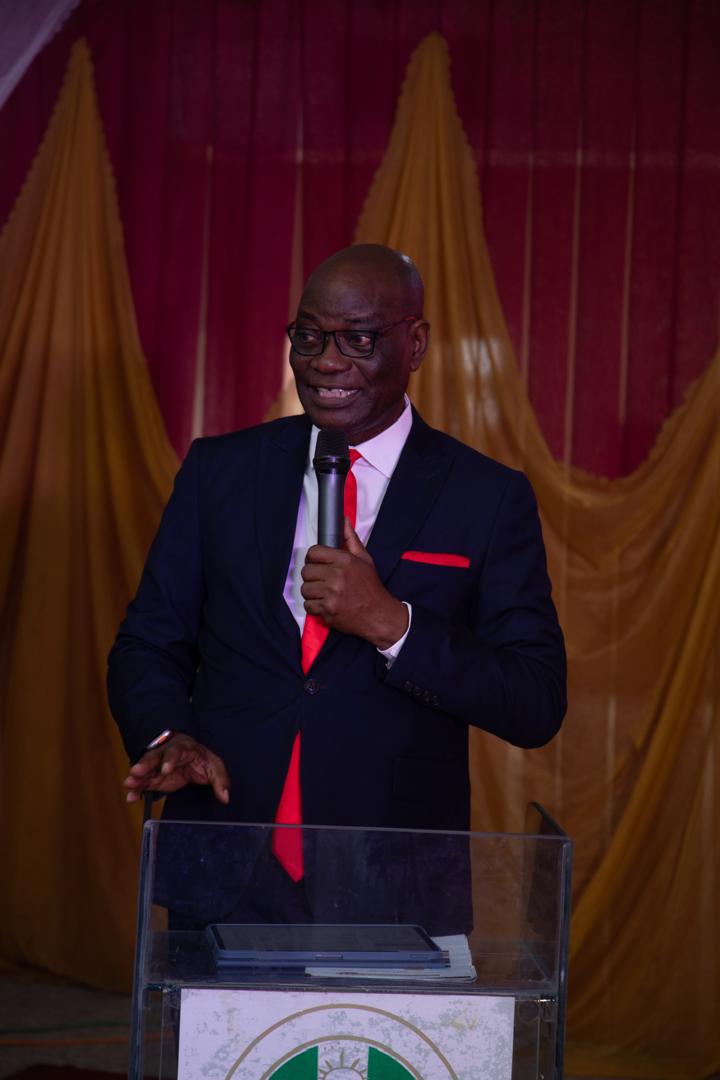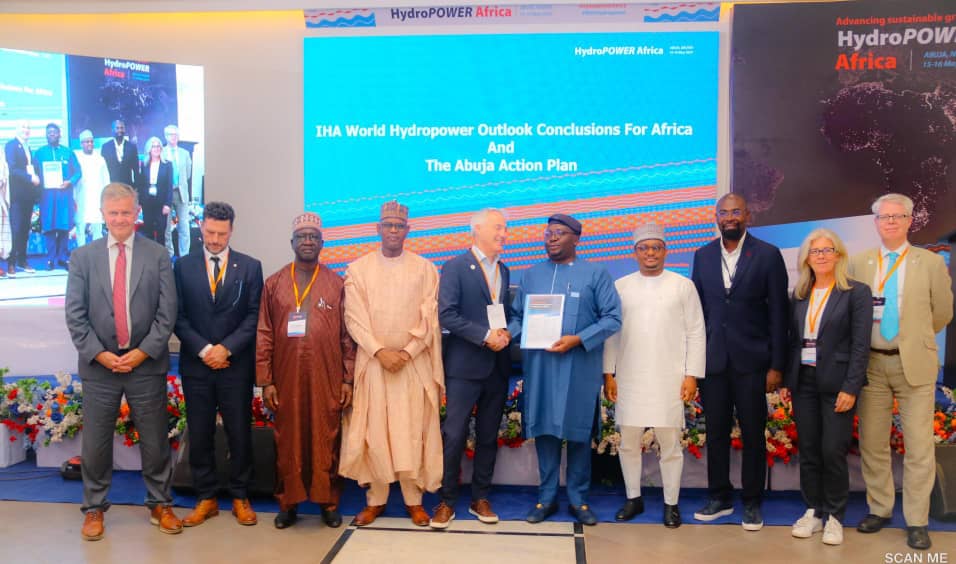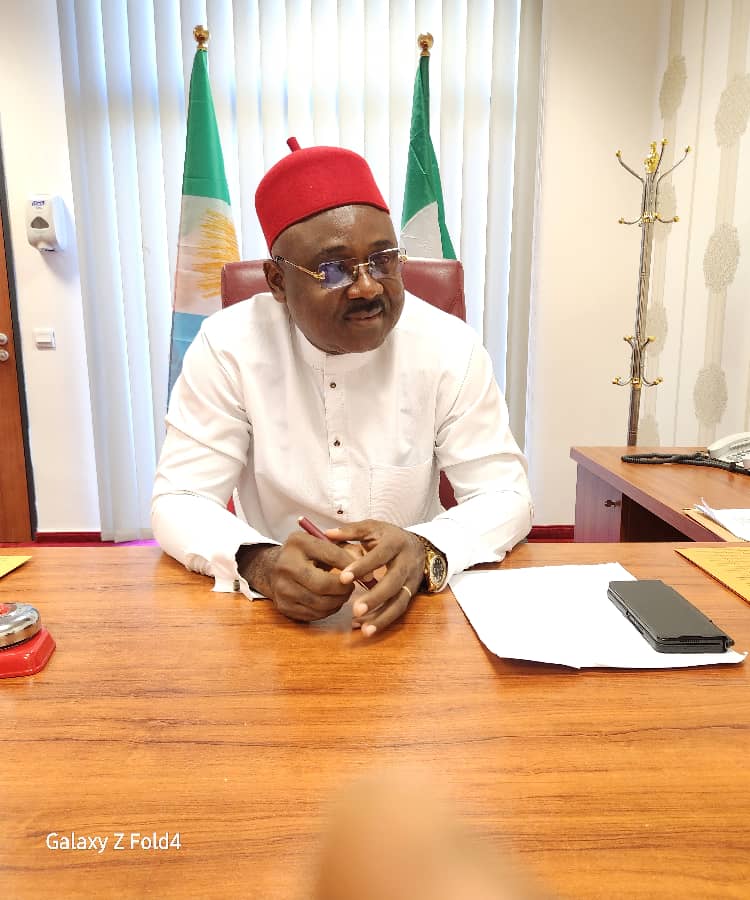Ex UNILAG VC, Ogundipe, tasks stakeholders on long term value of research investment

Prof. Oluwatoyin Ogundipe, immediate past Vice Chancellor, University of Lagos, has tasked critical stakeholders in the education sector and corporate organisations on the need to invest hugely in painstaking research efforts by scholars.
He identified pressure for immediate results to societal challenges and competition for limited funds, as some of the challenges facing contemporary scholarship and research in Africa.
Ogundipe made the assertion while delivering a keynote address at the
public launch of seven books, by Prof. Tunde Ope-Davies, on Thursday in Lagos.
The theme of his paper is: The Power of Research and Scholarship in Human Capital Development and Societal Advancement.
Ope-Davies is the Founder, Director, Centre for Digital Humanities, university of Lagos.
He noted that quality scholarship required more than individual brilliance, demanded ; supportive institutional frameworks, adequate resources, as well as the recognition of the long-term value of research investment.
According to Prof. Ogundipe, the growing complexity of societal problems, are also part of the challenges, adding that these factors all present obstacles to the type of sustained, deep scholarship, exemplified by the work being celebrated today, at the occasion.
He stated however that, these challenges also presented opportunities.
“The digital revolution has democratized access to information and created new possibilities for collaboration across geographical and institutional boundaries.
“The growing recognition of the importance of evidence-based has increased demands for high quality research.
“The emergence of the new methodologies and analytical tools, have expanded our capacity to address complex questions that previous generations of scholars could only approach superficially,” he stated.
He added Prof. Ope-Davies’ three decades of work, had demonstrated how to navigate these challenges, while maximising opportunities, noting that the consistency of purpose, depth of analysis and the practical relevance of the research, had demonstrated how to maintain scholarly rigour, while maintaining responsive to societal needs.
“It is therefore with delight that I celebrate not merely the launch of seven remarkable books, but to also bear witness to the culmination of nearly three decades of unwavering intellectual dedication by Prof. Ope-Davies.
“These volumes represent far more than bound pages, filled with words; they embody the transformative power of sustained scholarship and its profound capacity to reshape human potential and advance our collective progress.
“We are gathered not merely for a book launch, but to celebrate a monumental intellectual harvest; the fruition of years of rigorous inquiry, profound contemplation, and scholarly dedication by one of our own, the esteemed Prof. Ope-Davies.
“The launch of one book is a cause for celebration; the launch of seven is nothing short of an academic event of the first order. They are a product of almost three decades of rigorous intellectual investments and selfless service to human capital development in one of the best universities in our country.
“I am pretty familiar with Tunde’s pedigree and his very profound intellectual curiosity and enthusiasm, which has driven him to pioneer a very new, innovative and productive area of research and scholarship in Nigeria and Africa-digital humanities, the intersection between technology and humanities.
“I have always admired his enormous intellectual capacity and energy to develop and push the boundaries of scholarship in the humanities. He deserves our commendation and support,” the professor of Botany stated.
Explaining the theme of his paper; Ogundipe stated that it was nothing abstract chosen for convenience, but rather, the bedrock upon which the writer’s formidable contribution rested, noting that it was the urgent imperative of the current times.
He quoted Theodore Schultz, an economist, who posited that the human capital, knowledge, skills and health, that people accumulated, were the primary driver of economic growth and personal prosperity.
“But how is this capital built? It is not built by accident. It is constructed, intellectual brick by brick, through education. And what is education at its highest level, if not the transmission of knowledge forged in the fire of research?
“Prof. Ope-Davies’s seven books, especially his new research area, Digital Humanities, represent a vast and intricate blueprint for building human capital. Each volume, I am certain, is not a mere repetition of existing ideas, but a generative source of new frameworks, new critiques, and new solutions.
“They are instruments that will sharpen the minds of our students; the future leaders, innovators and citizens. They will equip policymakers with evidence-based tools.
“They will provide entrepreneurs with deeper insights into management, economics and societal dynamics. This is the first power of scholarship. it equips the individual mind, empowering a single person to achieve more, to understand more, and to contribute more.
“Throughout history, the advancement of civilizations has rested upon a fundamental truth. Knowledge, when systematically pursued and thoughtfully disseminated, becomes the cornerstone of human development.
“From the ancient libraries of Alexandria to the digital repositories of today, scholarly work has served as the bridge between human curiosity and societal transformation. Prof. Ope-Davies’s three decades of intellectual investment exemplifies this timeless principle, demonstrating how dedicated research transcends individual achievement to become a catalyst for broader human flourishing,” Prof Ogundipe stated.
According to him, the research products being we celebrated today, are not isolated academic exercises, but interconnected contributions to the grand canvass of human knowledge, with each volume representing years of meticulous investigation, critical analysis, and innovative thinking; the hallmarks of scholarship that truly matters.
“When we consider the magnitude of nearly 30 years devoted to advancing our understanding in Prof. Ope-Davies’s field of expertise, we witness the profound commitment required to push the boundaries of knowledge and create lasting impact.
“Through systematic inquiry and scholarly discourse, research identifies the gaps in our understanding, challenges conventional wisdom and proposes innovative solutions to complex problems.
“The transformative power of research in human capital development operates on multiple levels. First, it generates new knowledge that expands our collective understanding of human potential and learning processes.
“Second, it provides evidence-based frameworks for policy development and implementation. Third, it creates intellectual resources that educate and inspire future generations of scholars, practitioners, and leaders.
“Consider how Professor Ope-Davies’ decades of research have undoubtedly influenced countless students, colleagues, and practitioners. Each interaction, each published finding, each theoretical contribution has rippled outward, creating expanding circles of influence that touch lives far beyond the immediate academic community.
This multiplier effect represents one of the most significant aspects of scholarly work; its capacity to generate exponential returns on intellectual investment.
“I am not surprised that two volumes of the books we are launching today are a collection of essays written by his mentees, former students and colleagues from different parts of the country, in his honour.
“This is a clear testament to some of Prof. Ope-Davies’ intellectual investments and commitment to human capital development over these years. One of his mentees has described him as an incurable mentor.,” he said.
The former vice chancellor of UNILAG noted that quality research served as society’s early warning system system, identifying emerging challenges before they became crises, adding that it functioned as a diagnostic tool, helping to understand the root causes of persistent challenges.
He added that the launch of these seven volumes also highlighted the importance of knowledge preservation and dissemination.
“In our rapidly changing world, where information can be ephemeral and attention spans increasingly fragmented, the scholarly book remains a vital repository of sustained thought and comprehensive analysis.
“These volumes will serve as intellectual resources for current and future generations, providing the depth of analysis and breadth of perspective that only comes from decades of dedicated scholarship,” he said.
According to him, the significance of Ope-Davies’ work extends beyond the boundaries of the university itself
“In our interconnected world, scholarly contributions from any corner of the globe, have the potential to influence thinking and practice worldwide.
“The perspectives, methodologies and insights developed within the Nigerian academic context, brings unique value to global scholarly discourse.
“He has become an international scholar of great repute, a much sought-after keynote speaker in many international conferences and seminars. We are thus very fortunate in this country to have such a man as our own.
“We need to take care of them more than what we are doing at the moment.
A society that does not invest in knowledge production is a society destined to stagnate. It will be a consumer of others’ innovations, a follower of others’ policies, and a victim of its own intellectual dependency.
“Research and scholarship are the primary means by which a society learns to diagnose its own unique challenges and prescribe its own authentic solutions,” he said.
According to him, Nigeria, as Africa’s most populous nation and largest economy, faces complex challenges that mirror those confronted by developing nations worldwide.
He noted that research conducted within this context, particularly research that spanned three decades and encompasses the depth reflected in seven comprehensive books, offered invaluable insights for addressing similar challenges elsewhere.
READ ALSO: Anambra Guber: Observers commend INEC’s preparedness, urge EFCC to arrest vote buyers
UNILAG 1st Female Emeritus Prof. of Medicine inaugurates dermatology centre
“The challenges facing our dear nation are not problems that can be solved by importing foreign templates. They require home-grown, context-specific research.
“They require scholars like Prof. Ope-Davies and other colleagues in other disciplines, who from within, who from within the Nigerian and African experience, can analyse our realities, draw from our rich history and propose pathways that are both globally informed and locally relevant,” Prof. Ogundipe said.





